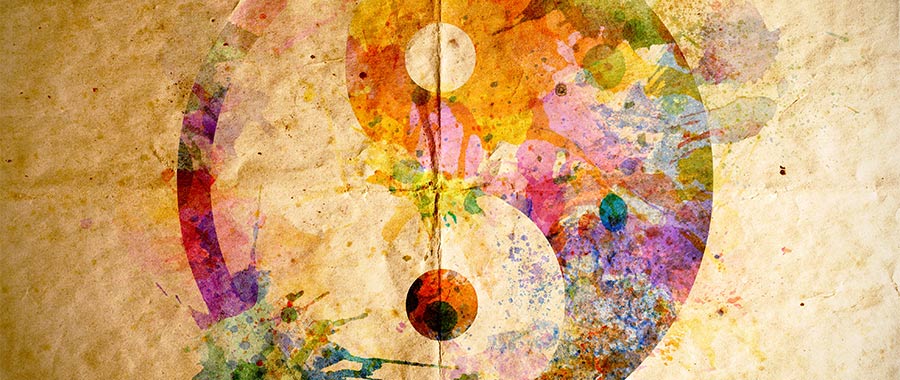The interplay of Yin and Yang, emblematic of duality and balance, transcends mere symbolism, emerging as a profound ideological framework that offers deep insights into various realms of human experience. Among these, gender equality forms a critical focal point that resonates with Bahá’í teachings. The Bahá’í Faith emphasizes the oneness of humanity and the equality of genders as fundamental tenets, which harmoniously align with the principles encapsulated in the concept of Yin and Yang.
At the very core of Yin and Yang lies the recognition of the interdependent nature of opposites. Yin, often associated with femininity, receptivity, and intuition, complements Yang, which embodies masculinity, assertiveness, and rationality. This relational dynamic does not merely advocate for balance in a conventional sense but rather posits that the presence of one enhances and gives meaning to the other. In relation to gender equality, this duality illuminates the necessity of integrating both masculine and feminine qualities in every sphere of life.
Historically, societies have cultivated a dichotomous view of gender, often relegating femininity to a subordinate role. Such constructs have perpetuated systemic inequalities, stifling the potential of individuals regardless of their gender. The Bahá’í perspective sharply contrasts this notion by advocating for a holistic view of human worth that transcends gender binaries. This assertion offers a paradigm shift, encouraging a reassessment of entrenched norms and methodologies that govern societal interactions.
Furthermore, understanding the essence of Yin and Yang fosters an appreciation for diversity within gender roles. Just as Yin and Yang are not monolithic entities but rather spectra of qualities, so too are the manifestations of gender. Each individual embodies a unique amalgamation of traits traditionally associated with either Yin or Yang, thus contributing to a richer, more nuanced societal fabric. The Bahá’í teachings compel individuals to regard gender as a spectrum rather than a rigid classification, advocating for recognition and respect for the diversity of gender expressions. This, in turn, fosters an inclusive environment that affirms the intrinsic value of every person.
The importance of balance is further illustrated in the collaborative potential of gender equality. When both genders are afforded equal opportunities to contribute their unique perspectives and skills, it catalyzes creativity and innovation. The synergy derived from this cooperative spirit is reminiscent of the harmonious interplay of Yin and Yang, where the complementary forces amplify each other’s strengths. This model not only enhances decision-making processes in various contexts—be it personal relationships, corporate strategies, or national policies—but also paves the way for sustainable development and societal progress.
In the context of education, Bahá’í teachings advocate for equitable access to knowledge for both genders, recognizing the transformative power of education as a facilitator of equality. The philosophy inherent in Yin and Yang underscores the significance of nurturing both masculine and feminine educational methodologies. A curriculum that integrates qualities of both approaches—emphasizing critical thinking alongside emotional intelligence—can foster well-rounded individuals equipped to navigate complexities in the real world. As such, educational institutions must strive to cultivate environments that honor this duality, thereby inspiring future generations to champion equality.
Moreover, the application of Yin and Yang in the workplace epitomizes the movement towards gender equality. Organizations are increasingly recognizing the value of diverse teams that encompass a variety of perspectives. The Bahá’í principle of unity in diversity invites workplaces to leverage the strengths inherent in this duality. Harnessing both collaborative and competitive strengths encourages workplaces to flourish while addressing challenges with innovative solutions. Acknowledging and valuing the distinctive contributions of all employees fosters a culture of mutual respect and understanding, integral in today’s globalized economy.
The principles of personal development from a Bahá’í viewpoint also shed light on gender equality through the lens of Yin and Yang. Each individual is encouraged to cultivate their inner qualities, an endeavor that not only promotes personal growth but also contributes to societal harmony. This internal balance—nurturing both receptive qualities associated with Yin and assertive traits linked to Yang—enables individuals to embody a more complete version of themselves. Such holistic self-realization is not merely self-serving; it serves the betterment of community and ultimately the realization of a just, equitable society.
As societies continue to evolve, the challenges pertaining to gender equality become more nuanced. It becomes crucial to engage with the changing narratives surrounding gender. The Yin and Yang framework offers a recalibrated perspective, urging advocates of gender equality to transcend simplistic views and to engage with the inherent complexities of human identity. Embracing this duality fosters dialogues that are more inclusive, compassionate, and ultimately transformative, paving the way for genuine equality.
In conclusion, the synthesis of Bahá’í teachings with the principles of Yin and Yang presents an innovative approach to understanding and promoting gender equality. By recognizing the interdependence of masculine and feminine traits, fostering inclusivity, and creating environments conducive to collaboration, society can progress towards a more equitable future. The marriage of these philosophies not only augments our understanding of gender dynamics but also inspires action towards the realization of a world where true equality is not merely an aspiration but a lived reality for all.
